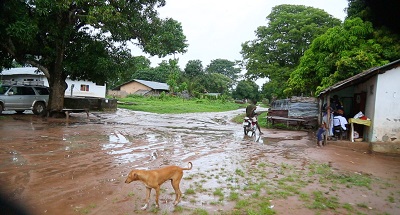By: Alieu Jallow
The residents of Jakoi Bintang, a village located 1.5 km away from the Bintang highway, have called on President Adama Barrow to intervene in their village’s electrification process as the National Water and Electricity Company (NAWEC) has demanded a payment of over 2 million dalasis to extend the rural electrification project that commenced in 2012.
The village has all the required electrification surveys. However, attempts to complete the implementation have not been successful.
Electricity is a crucial component of modern development and has greatly improved the quality of life. In today’s world, electronic gadgets are used extensively by people of all financial backgrounds, making access to electricity a fundamental human right.
Electricity has numerous benefits, including enhancing the learning environment for students, providing extended operating hours for small businesses, creating economic opportunities, and increasing security. However, there are still many villages in rural Gambia that have never had access to electricity since its introduction. As a result, they rely on low-voltage solar-powered lamps that can only power small to medium-sized bulbs.
Speaking to our reporter, Buba Gibba, chairman of the village development committee, outlined that the village was surveyed to benefit from the rural electricity project in the second republic, but matters changed once the Gambia ushered in a new regime and efforts had been made on numerous occasions to follow up but turned unproductive.
“We are asked to pay D1.8 million and as a village, [even if we] combined all our [earnings], we can’t afford that amount and it’s really challenging for us”.
Bakary Jarju, secretary of the Village Development Committee, expressed his concerns about the electricity challenges faced by the village. Along with poor road networks and lack of access to safe drinking water, he appealed to President Barrow and his government to address the situation and provide assistance with electricity and road construction.
He shared an incident where they were given hope during a follow-up, but unfortunately, it did not result in a positive outcome.
Speaking further, Jarju said they are always in the dark regarding news happenings as “we do not have the facilities to power our electronic gadgets”.
“Here even to charge our phones is a big challenge as we have to peddle to the next village to power our phones, something that’s so unbearable”.
Some students from the village have expressed that the absence of electricity is hindering their learning. They have mentioned that reading at night is almost impossible due to the low voltage of their solar panels, which can only last for two hours.
Despite this challenge, the residents remain hopeful that the government will address their situation or that a charitable organization will provide them with a high-voltage solar panel that can be installed at a specific location to aid their school-going children and also charge their phones.




